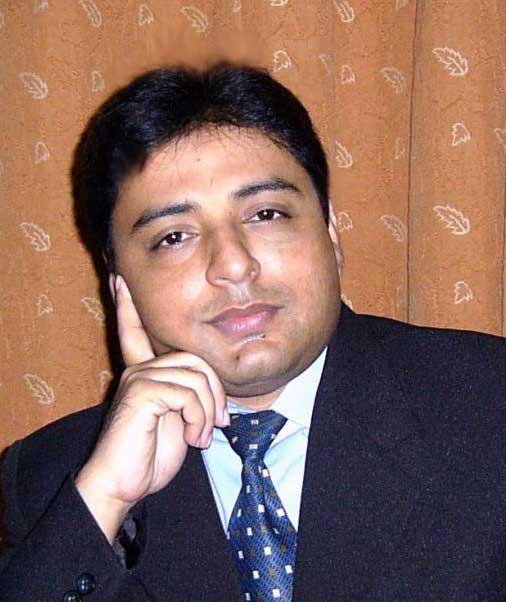The much-awaited milestone of January 20, 2025, has been crossed, and various socio-political, analytical, and academic circles are now dissecting President Donald Trump’s inaugural address, weighing it against their expectations. His 29-minute inauguration speech marked the beginning of his second term, underpinned by the theme of a “golden age of America.” Emphasising national sovereignty, security, and economic revitalisation, he employed his characteristic rhetoric, vowing to take unprecedented steps to achieve historic milestones. “The golden age of America begins right now,” he declared. “From this day forward, our country will flourish and be respected.” The phrase “will be respected” seems to acknowledge global sentiments-despite widespread resentment of U.S. hegemonic policies, many around the world yearn for a more just and balanced approach.
The speech offered a glimmer of hope with his expressed commitment to global peace, pledging to end wars and hostilities through negotiation and diplomacy. However, his proposals to annex Canada and Greenland, reclaim rights over the Panama Canal, and impose military measures at the southern border painted a contrasting, ominous picture. His announcement to rename the Gulf of Mexico as the “Gulf of America” and his criticism of Mexico for allowing illegal migration underscored his penchant for divisive and controversial measures. “We’re going to be changing the name of the Gulf of Mexico to the Gulf of America. What a beautiful name. And it’s appropriate. It’s appropriate. And Mexico has to stop allowing millions of people to pour into our country,” he proclaimed. As Pakistani immigrants also form a major pool, there, and support Pakistani economy by sending remittances, the new policies may affect Pakistani-Americans’ working class doing jobs in various capacities.
Although the speech primarily focused on domestic issues, its global implications were palpable, especially for Muslim-majority nations and Pakistan. Historically, U.S. foreign policy has been incomplete without accounting for South Asia’s geopolitical dynamics, and addressing the region without Pakistan’s involvement seems unfeasible. However, Pakistan’s diminished relevance in Washington’s South Asia policy-following the U.S. withdrawal from Afghanistan, its strategic competition with China, and its deepening ties with India-has become increasingly evident to policymakers in Islamabad. The “America First” stance suggests a transactional approach to foreign relations. Pakistan might face increased pressure to align with U.S. policies, especially concerning counterterrorism efforts and regional security. Any divergence could result in diplomatic strains or adjustments in aid and trade agreements.
Interestingly, Trump’s oath-taking ceremony coincided with the inauguration of Gwadar International Airport, a flagship project of the China-Pakistan Economic Corridor (CPEC). While it was a diplomatic gesture to invite the Chinese President to the ceremony, Trump’s deep-seated rivalry with China remains undeniable. His stated intentions to restructure trade systems, impose tariffs, and prioritise American industries are likely to exacerbate economic challenges for developing countries, including Pakistan, which is already grappling with trade restrictions and bans. As Trump has revealed a clear inclination towards India as a strategic counterbalance to China, this could have implications for Pakistan, predominantly if Trump’s direction displays less sensitivity to Pakistan’s concerns over held Kashmir or India’s role in Afghanistan.
The US may prioritise its broader Indo-Pacific strategy over addressing South Asian security dynamics, risking a diplomatic rift if Pakistan perceives a pro-India bias that brushes aside its security interests. Interestingly, this move will bring China and Pakistan closer to each other, yoking them in a more cemented bond, as a desperate reaction. So, will it be useful for the USA to lose a traditional and old strategic partner, at the expense of a new one?
During his first term, Trump cut $1.3 billion in security assistance to Pakistan, significantly straining the already fragile, security-centric bilateral relationship. Unsurprisingly, his second-term agenda offers little respite for Pakistan, a nation whose strategic importance is now overshadowed by other priorities.
In contrast to some speculative social media narratives propagated by supporters of Pakistan Tehreek-e-Insaf (PTI), Trump’s speech made no mention of Pakistan’s political turmoil or the imprisonment of PTI’s founder and former Prime Minister, Imran Khan. Despite prior claims of a friendship between the two leaders to the extent of Trump’s calling Imran Khan “a great friend”, Trump did not bother to intervene. His inaction mirrors his previous indifference towards the release of Dr Shakeel Afridi, despite campaign promises during his first tenure. These instances reinforce Trump’s pragmatic and utilitarian approach to relationships and policy.
Afghanistan remains a key concern for Pakistan due to ongoing humanitarian crises, the presence of global terrorist networks, the smuggling of drugs and small arms, and the influx of Afghan refugees. While the Taliban regime in Afghanistan survives on foreign humanitarian aid, with the U.S. as its largest donor, Trump’s decision to cancel the airlifting of 1,700 Afghan refugees stranded in Pakistan has sparked outrage. These individuals, previously approved for U.S. immigration under a special program for those who supported American forces during the Afghan war, now face an uncertain future. Advocacy groups and refugee organizations have condemned the move, highlighting the erosion of America’s moral responsibility towards its allies.
Pakistan will have to follow the wait-and-see policy unless concrete measures follow the blueprints of the President Trump’s plans and resolves. As a pragmatic real estate tycoon, businessman, and politician, Trump remains focused on safeguarding national interests above all else. His concepts of war, peace, mercy, and cruelty are inherently tied to strategic and political gains, devoid of emotional or ideological considerations. His second term promises to be as polarising and impactful as his first, leaving the world to speculate on whether his policies will pave the way for peace or usher in new challenges. Commenting on the failed attempt of his assassination, the President firmly stated, “I was saved by God to make America great again.” Let us hope the world will see a great America, ensuring a great and peaceful world and greater human society.
Sign in
Welcome! Log into your account
Forgot your password? Get help
Password recovery
Recover your password
A password will be e-mailed to you.





